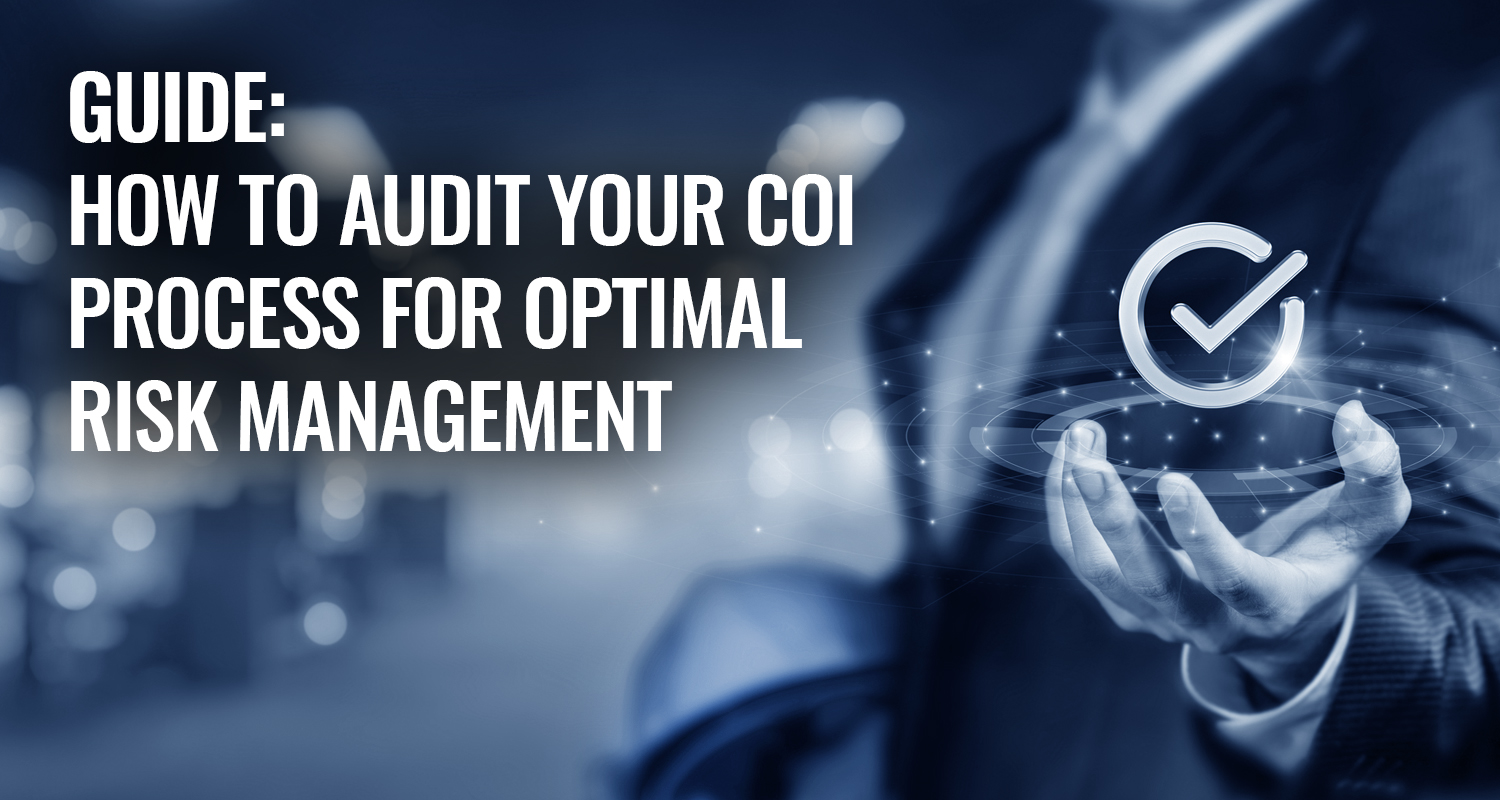Streamlining Compliance and Contractor Invoicing for GCs
In the world of construction procurement, managing compliance and contractor invoicing is a critical task.
2 min read
Jerad Ferrell
:
Apr 28, 2023 6:14:28 PM

Certificates of Insurance (COIs) are vital to managing risk and compliance in construction. Auditing your COI process is crucial to ensuring your company is protected against potential liabilities and negative consequences. This user guide is designed to help construction VPs of risk, procurement managers, and directors audit their COI process for optimal risk management.
Taking the time to plan proactively unequivocally protects your business and safeguards the livelihoods that your valued employees and their families have come to rely upon your business for. To avoid the impact of recent events similar to the Silicon Valley Bank and Signature Bank collapse from impacting day-to-day operations, contractors can follow these 8 critical steps to safeguard their business.
Certificates of Insurance serve as proof of adequate insurance coverage for contractors and subcontractors. An effective COI process includes proper verification, compliance, tracking, and management. Common challenges in managing COIs include non-compliant COIs, expired COIs, inefficient tracking, inadequate subcontractor management, and legal disputes.
Before conducting an audit, define the objectives and scope of the audit, such as identifying areas for improvement or assessing compliance with industry standards. Assemble an audit team with expertise in COI management, risk management, and regulatory compliance. Gather necessary documentation and data, including COIs, contracts, and insurance requirements.
Examine the accuracy and completeness of COI information in your system. Assess the process for verifying COI compliance, including checks for coverage limits, policy types, and expiration dates. Identify areas for improvement in the verification process, such as increased automation or clearer communication with subcontractors.
Evaluate the efficiency and effectiveness of your COI tracking system, including the use of a centralized repository for all COI documents. Review automated alerts and notifications for expiring COIs, ensuring they provide ample time for renewal. Assess the adequacy of your subcontractor management system, including the process for verifying and tracking subcontractor COIs.
Review training programs and resources available to employees responsible for COI management. Identify gaps in training and support, such as insufficient guidance on regulatory requirements or complex insurance terms. Develop a plan for enhancing COI management training, including additional resources, workshops, or mentoring opportunities.
Based on audit findings, prioritize areas for improvement and create a timeline for implementing changes and enhancements. Assign responsibilities and resources for executing the action plan, ensuring clear communication and accountability among team members.
Establish key performance indicators (KPIs) for measuring progress toward achieving audit objectives. Regularly review progress and adapt the COI process as needed based on ongoing monitoring and feedback. Encourage continuous improvement in COI management by fostering a culture of learning and collaboration.
Regular COI process audits are essential for optimal risk management in the construction industry. By implementing changes based on audit findings and continually striving for improvement, you can protect your company's reputation and financial well-being. Embrace the ongoing journey of refining your COI management process to safeguard your business from potential liabilities and negative consequences.
-1.png)
In the world of construction procurement, managing compliance and contractor invoicing is a critical task.

1 min read
Simpler than before At Constrafor it’s our mission to support subcontractors and general contractors by streamlining administrative duties –...

CONSTRAFOR HELPS M. B. KAHN STREAMLINE COI MANAGEMENT AND IMPROVE COMPLIANCE M. B. Kahn Construction Co., Inc. is a construction company with...